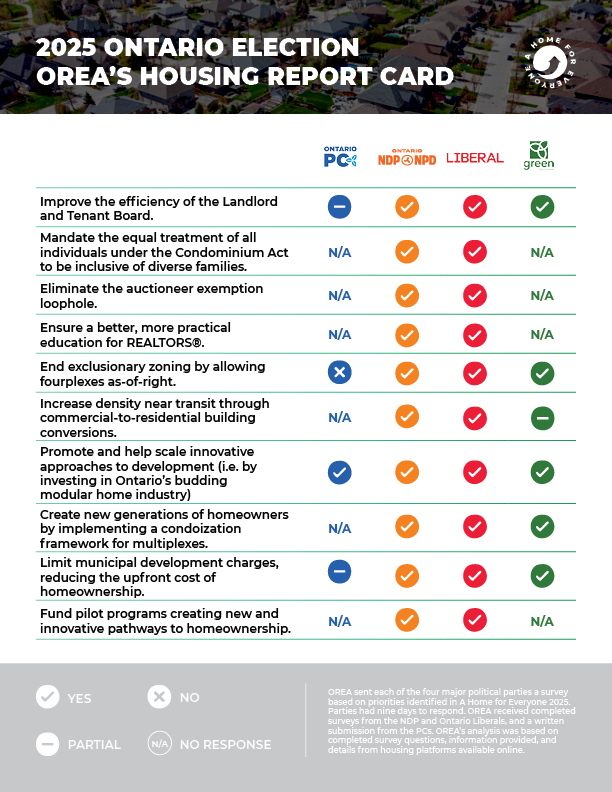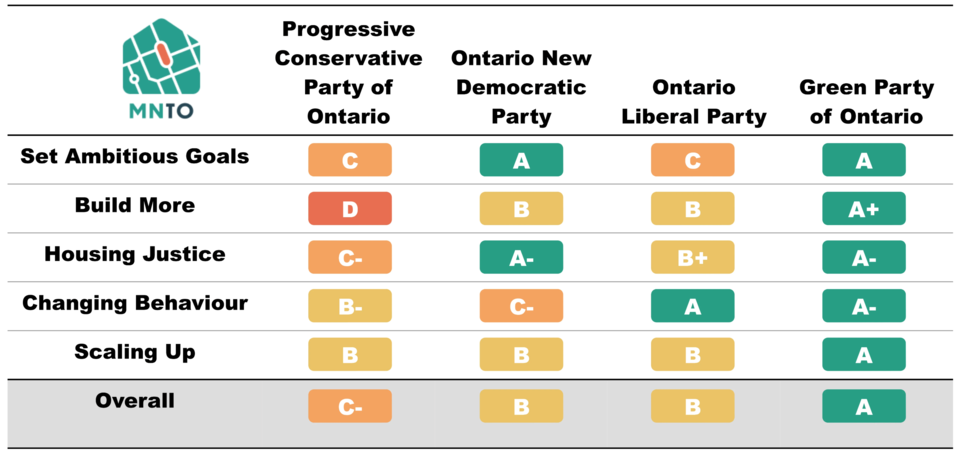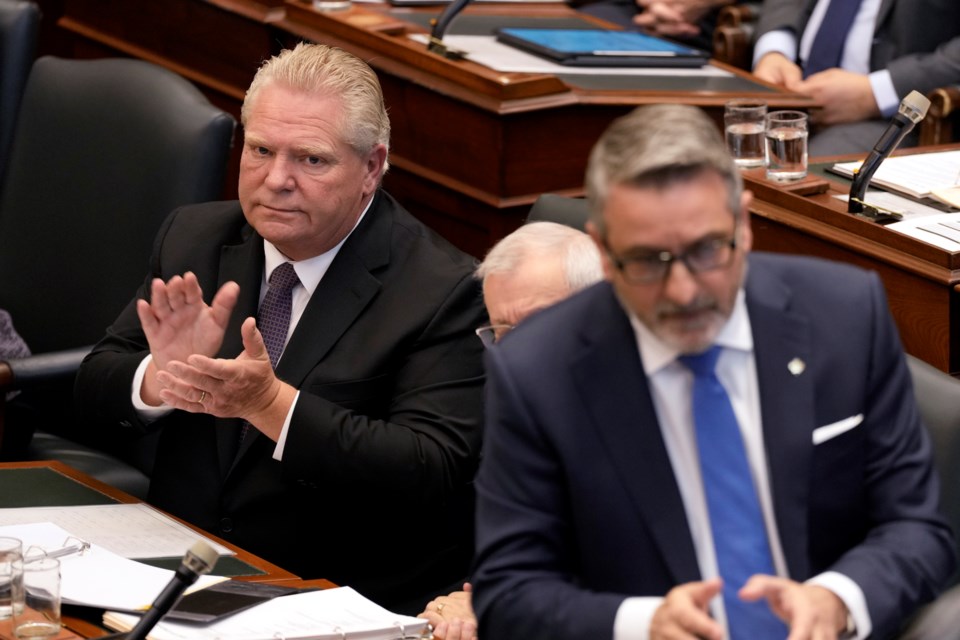Under a Liberal or NDP government, fourplexes would be legalized provincewide, commercial buildings near transit would be converted to homes, and development charges would be cut, according to the Ontario Real Estate Association.
Not so under Doug Ford's Progressive Conservatives.
In a "report card" released Wednesday by OREA, the association representing Ontario realtors, the other two main parties agreed to all of the group's suggested action items, aimed at building more homes and making housing less expensive. The Greens got about halfway, while the PCs lag far behind.
Ford has nixed the idea of ending so-called exclusionary zoning by allowing fourplexes to be built as of right across Ontario — a key recommendation from his Housing Affordability Task Force — saying there would be "a lot of shouting and screaming."
His party didn't respond to several of OREA's survey questions, including on commercial-to-residential conversions and creating "new and innovative pathways to homeownership."

The PCs got "partial" marks for limiting development charges — fees levied by municipalities on new units that builders and housing experts have said act as a barrier to new housing.
The Ford government backed off a policy that would have slowed the growth of the charges on regular homes after municipalities pushed back.
In Monday’s leaders' debate, Ford said, "Do you know what we need to do? We need to cut the red tape. We need to get rid of the development charges and all the fees, the parks fees, that fees—" before being cut off by the moderator.
Liberal Leader Bonnie Crombie has promised to end development charges for new homes under 3,000 square feet.
Green Leader Mike Schreiner has pledged to do the same for homes under 2,000 sq ft within urban boundaries.
The PCs got full marks from OREA for just one commitment: to encourage modular housing with new "innovation guides" and financing options.
More Neighbours Toronto (MNTO), a pro-density volunteer organization, released its party rankings on Thursday, giving the PCs a C-, the Liberals and NDP Bs, and the Greens an A.
MNTO gave the Green Party top marks for its plans to allow sixplexes in cities with populations over 500,000, densify main streets and transit corridors, and set provincial standards for several urbanist bugbears including setbacks, angular planes and mandatory parking minimums.
The PCs haven't gotten it done, the group said.
"Despite the release of the Housing Affordability Task Force (HATF) report and a shift in rhetoric, the Ontario government’s actions have lacked urgency and even backtracked when they received pushback," MNTO said in a release.

Ford and his government have railed against so called NIMBYs (not-in-my-backyarders) for slowing down housing. Asked Thursday whether OREA's report card signalled the PCs as the top choice for NIMBYs, Ford said no.
"Well, I wouldn't say that at all. We've cut more red tape, more regulations," he said.
Ford added that his government "went out there and encouraged the (development charges) to do half," though the PC Party did not return a request for an explanation of what the leader meant by that.
Ford touted his government's spending on housing-enabling infrastructure like wastewater plants, and his bestowal of strong mayor powers on several city leaders.
"OREA, they've always been a big supporter. So we're going to continue going out and making sure that we build new homes and have opportunities as well for all our real estate folks," he said.
The Ford government has lagged far behind its self-imposed goal of 1.5 million homes by 2031. A historic pace is now needed to hit the target, even after the government added long-term care home beds and converted basements to its tally.
“Whether they are voting PC, NDP, Liberal, or Green, Ontarians want leaders who are willing to help people achieve the dream of homeownership, obtain more affordable housing, and break down barriers that prevent them from finding a great place to call home,” OREA president Rick Kedzior said in a news release.
OREA said the 2025 election is "pivotal for the future of housing in Ontario."
Election day is Feb. 27. Advance voting is available from Thursday to Saturday.




